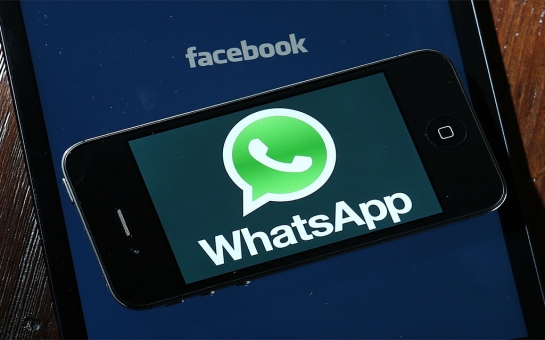The world's biggest social networking company, under this move, will acquire a fast-growing messaging service, which allows people to not only send texts, but also photos and videos via their smartphones.It's not difficult to see why Facebook CEO Mark Zuckerberg would want WhatsApp; it's immensely popular around the globe, Malaysia -- one of the world's most cyber-sociable countries -- included.WhatsApp is free for the first year and costs US$1 per year after that, has no ads and enables users to communicate with people overseas without incurring charges for pricey international texts and phone calls. It is also efficient in handling important to inane conversations between two large groups of people. Its group chat function is widely used among colleagues to share information and work updates, re-acquaint former schoolmates so they can inflict on each other their health woes and mid-life crises, and link otherwise estranged family members.WhatsApp messages can be accessed on the go, at a touch or swipe, even where they have no place to be -- the cineplex, bedroom or bathroom. Its so widely used these days that WhatsApp has gone the way of Google, Skype and YouTube and become accepted as a verb.If we don't know something, we Google it, we Skype to keep in touch, we YouTube to watch video clips, and we Whats -App people about what's going on.Facebook's acquisition of the messaging service has, however, raised security concerns over the billions of messages delivered on the platform and the possible integration of services. As WhatsApp is based on phone numbers rather than usernames, Facebook has in effect just bought a list of hundreds of millions of phone numbers."I just hope they will not link our WhatsApp phone number to our Facebook account and send us targeted advertisements via text message. This will be a nuisance and an invasion of privacy," screeched a university tutor when she read about the acquisition."We have no control and must therefore be responsible and careful with what we post online," another nervous netizen noted.This concern has led to a proliferation of articles urging users to switch to another instant messaging service -- there's WeChat, Line, Kik Messenger, Viber, Telegram, Google Hangouts, Skype, and the grandfather of instant messaging BBM (temporarily resurrected with the release of BBM for Android and iPhone).These messages urging users to abandon WhatsApp are being shared, ironically, on Facebook. Some of these other apps do have interesting functions -- Tinder and WeChat, for example, help users meet potential dates in real time for free by leveraging on geo-location.This fear of privacy infringement has led to users crossing over to other platforms the way they would political parties in the run-up to an election.Telegram on Android and iPhone surpassed WhatsApp in the App Store rankings just five days after the news of Facebook's buy. Some 4.95 million people signed up for Telegram in a day, the company revealed in its Twitter account on Feb 23, in what some believe is a phenomenon brought about by fleeing WhatsApp users. Telegram, which comes with a "self-destruct timer" for unsent messages, and allows for "secret chats", and the creation of group chats comprising up to 100 members, is now the No. 1 most downloaded iPhone app in 48 countries.These developments and security fears are rather puzzling, however. The people who fear privacy trespasses are often the same ones who post hundreds of photos of themselves and family members in curious poses after revealing their location.Ultimately, the onus is on users to ensure their privacy. They must be aware that they themselves are responsible for their own security, as well as everything they put up on Facebook, WhatsApp and other social media networks.Those who are discomfited over the privacy of their posts need not feel obliged to post every single thing about their lives online because nothing put up can really be truly private.According to Serge Malenkovich at the security firm Kaspersky: "Honestly speaking, WhatsApp was never meant to be a true confidential messaging tool... confidential data shouldn't be sent unencrypted over standard communication channels, be it Facebook, WhatsApp or e-mail."For those who disagree or strongly believe that instant messaging companies and social networks are nothing but evil, debased information pillagers -- just don't sign up.(nst.com)ANN.Az
What's up with WhatsApp?
Business
19:40 | 27.02.2014

What's up with WhatsApp?
LAST week, the social media world was abuzz over Facebook's announcement that it would pay at least US$16 billion (RM52 billion) for WhatsApp.
Follow us !










